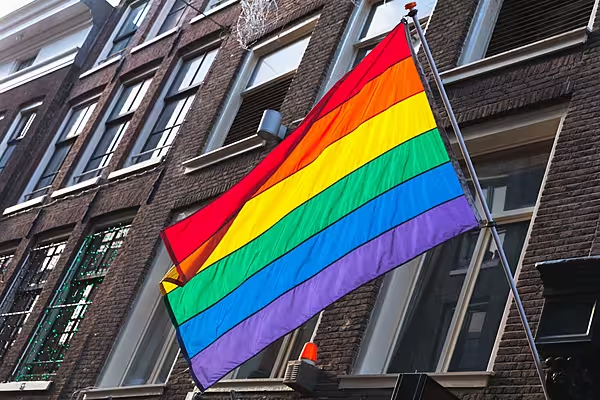Advertisements by Coca-Cola around a music festival in Hungary that promote LGBT acceptance have prompted a boycott call from a senior member of the conservative ruling party.
The posters, in tandem with the week-long "Love Revolution" event starting on Wednesday in Budapest, show gay people and couples smiling with slogans like "zero sugar, zero prejudice".
That has irked some supporters of Viktor Orban's nationalist Fidesz party, which supports a prohibition of same-sex marriage.
Boycott Call
On Sunday, Fidesz's deputy speaker Istvan Boldog called for a boycott of Coca-Cola products during its "provocative" campaign. But with gay acceptance rising among Hungarians, it was unclear if his call would gain traction.
Right-wing news portals echoed his antipathy.
"The homosexual lobby is laying siege to Budapest, leaving no space to avoid this," complained one, Pesti Sracok.
Orban, who rails against immigrants, promotes "ethnic homogeneity" and seeks to protect Europe's Christian traditions, opposes equal rights to same-sex couples while also advocating quiet gay-straight co-existence.
Coca-Cola said on Monday the Sziget festival, expected to draw more than half a million people, echoes core principles of the U.S. multinational.
"We believe both hetero- and homosexuals have the right to love the person they want the way they want," it said in a statement.
Free Choice
Fidesz stopped short of endorsing Boldog's boycott call, saying Hungarians were free to choose whether to drink Coke.
Tamas Dombos, an advocate with the Hatter gay rights group, said the government was homophobic but also aware of society's growing acceptance of gay lifestyles.
"We have a feeling they are testing people in this subject," he told Reuters. "The entire government propaganda is built on conflict, and they need enemies. After the EU, migrants, NGOs and even the homeless, now it may be LGBTQ people."
"Sometimes it's hard to dissect whether it's a political strategy or just an inherent real homophobe getting mad at something like Coke’s campaign."
Changing Attitudes
According to a 2018 Hatter study, nearly two-thirds of Hungarians believe gay people should be free to live as they please, up from less than half in 2002.
Gay rights have caused more of a stir in Poland, where ruling right-wing Law and Justice (PiS) party, a Fidesz ally, has launched an anti-gay campaign in an apparent attempt to re-energise its mainly rural base.
One conservative magazine distributed "LGBT-free zone" stickers and some towns have declared themselves "LGBT-free".
Orban has rarely addressed the issue head on, though in a 2016 interview he said gay people "can do what they want but cannot get their marriages recognised by the state... An apple cannot ask to be called a pear."
News by Reuters. Click subscribe to sign up to ESM: European Supermarket Magazine.














